At Flat Point Farm in West Tisbury, Christa Fischer greets her sheep like old friends. She also keeps a binder close at hand to catalogue family trees, an especially important detail during lambing season.
Sometimes she will name a sheep after a writer and the offspring will carry that theme forward.
“For example, all of Louisa’s [children] are named after Louisa May Alcott characters so we can keep track of the lineage,” Ms. Fischer said during a recent tour of the coastal farm. “It’s fun to see how much like their mom they are.”
At farms around the Island, lambs are one of the many spring harbingers here that include the chorus of pinkletinks from the swamps and wetlands, and majestic osprey circling overhead as they build their nests.
Lambs are usually born in March and April on the Vineyard. Flat Point Farm’s first lambs arrived on March 24 when Maria gave birth to Eliza B. and another unnamed lamb (the males are not named). So far this season, there have been 13 new lambs born, with at least two more expected.
“You first start noticing that the lambs are developing an udder,” farm co-owner Arnie Fischer Jr. said. “So then we start keeping an eye on them. Sometimes you do have to help [when they’re born].”
Mr. Fischer’s father started the farm in 1939. The family legacy lives on, as Christa, Arnie and his sister Eleanor Neubert run the operations. The farm sells lamb, pork, beef and eggs. Arnie and Christa’s daughter Emily Fischer also handles the processing of wool and felt, and runs her own business making goat milk soap.
Not far away at the Whiting Farm, another historic West Tisbury sheep farm, Allen Whiting recalls growing up with hundreds of lambs. They would sprawl around his house, warming up beside the fireplace or napping in front of a warm oven. But in his lifetime the Island sheep farming industry has changed. He now raises about 20 lambs each year.
“If I try to count them all, I’ll fall asleep,” joked Mr. Whiting, who is also a noted artist.
Mr. Whiting said sheep raised at his farm are almost all harvested to provide meat for his family, or sent to auction. He said the wool market is now too small to be profitable for a small farm.
“I think basically, on a real economical reality, this farm has been out of business since I was born,” Mr. Whiting said. “But we love it. We want to take care of the land . . . and we do the best we can.”
At the Allen Farm on South Road in Chilmark, with its sweeping views of the Atlantic Ocean, sheep raising has been a practice since 1762. Farm co-owner Clarissa Allen said lambing season sees up to three births a day at the farm, and continues to be one of the busiest and most exciting times of the year for her family.
This spring, the Allen Farm is expecting over 60 lambs. So far only one has needed to be bottle-fed, something Ms. Allen’s grandchildren — Tavira, Arlo and Florence — relish.
“The lambs bond with them and follow them around like, you know, Mary Had a Little Lamb,” Ms. Allen said.
At Mermaid Farm on Middle Road in Chilmark, Caitlin Jones, who runs the farm with her husband Allen Healy, said the farm’s pen is filled with Icelandic lambs in shades of brown and white.
“What’s cute is when the moms lie down, the lambs will climb on top of them and do the marshmallow ride across them, you know, jumping from one to another,” Ms. Jones said.
Mermaid Farm has been raising lambs for 25 years. Ms. Jones said a majority of the male lambs are harvested for meat and they keep the females for breeding.
She added that the birthing process is just as hard for sheep as it is for cows and horses. When something goes wrong, she relies on the wider sheep-raising community for help.
Collins Heavener of the Marshall Farm on Chappaquiddick agreed. He said all the Island sheep farmers will call on each other if a lamb is struggling during birth and even exchange medicines.
“I have no idea where I’d be without them,” Mr. Heavener said.
It’s been a tough lambing season at the Marshall Farm, which is only in its fourth year. Three of Mr. Heavener’s lambs died despite his best efforts, which he said is a sad reality for sheep farmers.
“Most years they just do their thing, and I show up and there are lambs running around,” Mr. Heavener said. “It’s beautiful.”
Back at Flat Point Farm, as the days stretch longer, the lambs have begun to get bolder and more inquisitive of their surroundings.
“Look at those lambs,” Mr. Fischer said with a laugh. “Two days old and trying to nibble grass.”
Mr. Fischer estimates that in about a month, the sheep will roam to the vast fields bordering the Tisbury Great Pond. But there’s no knowing exactly when that will happen.
“When they start getting through the fence, they’ll make the decision for us,” he said.

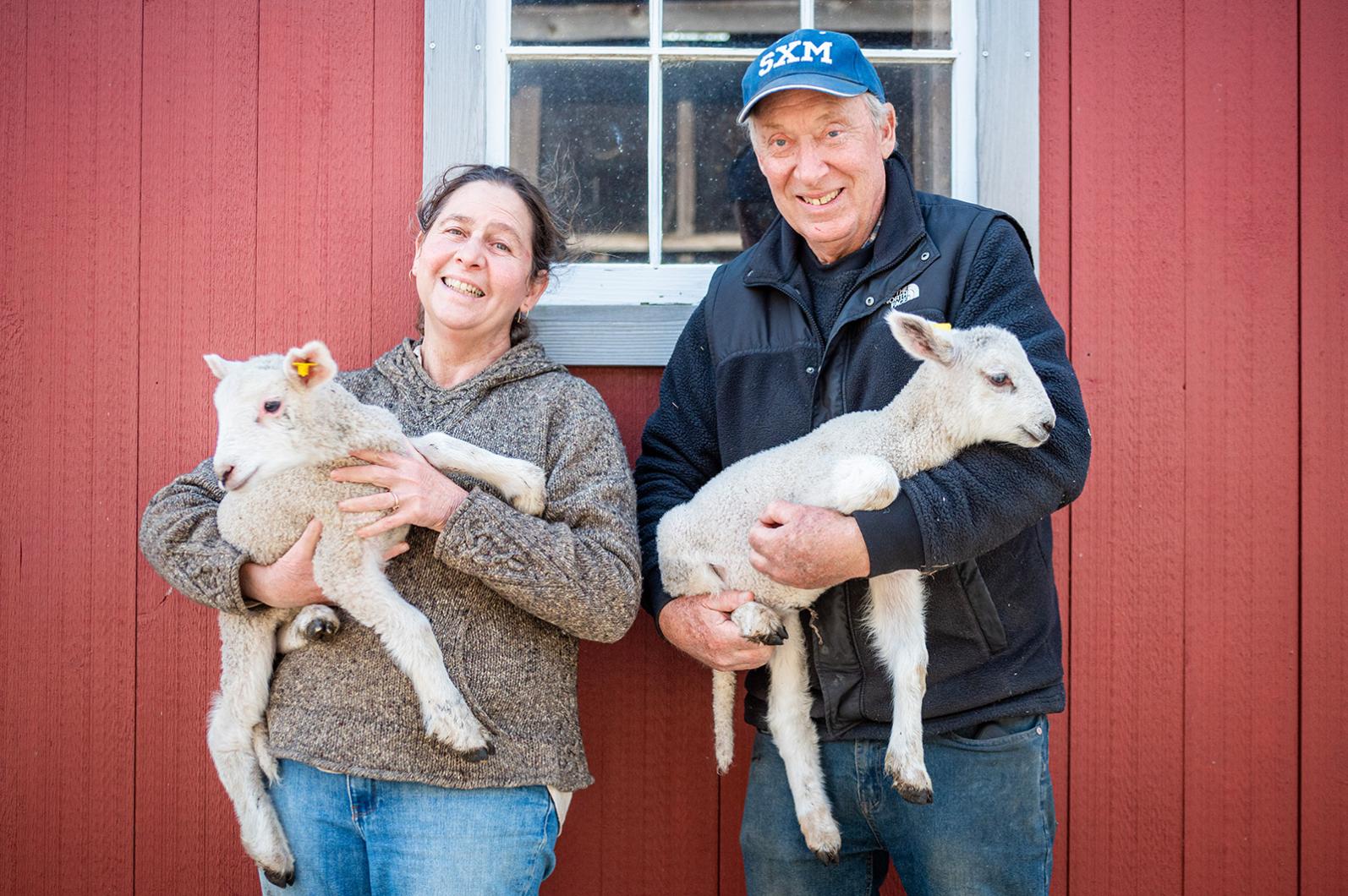
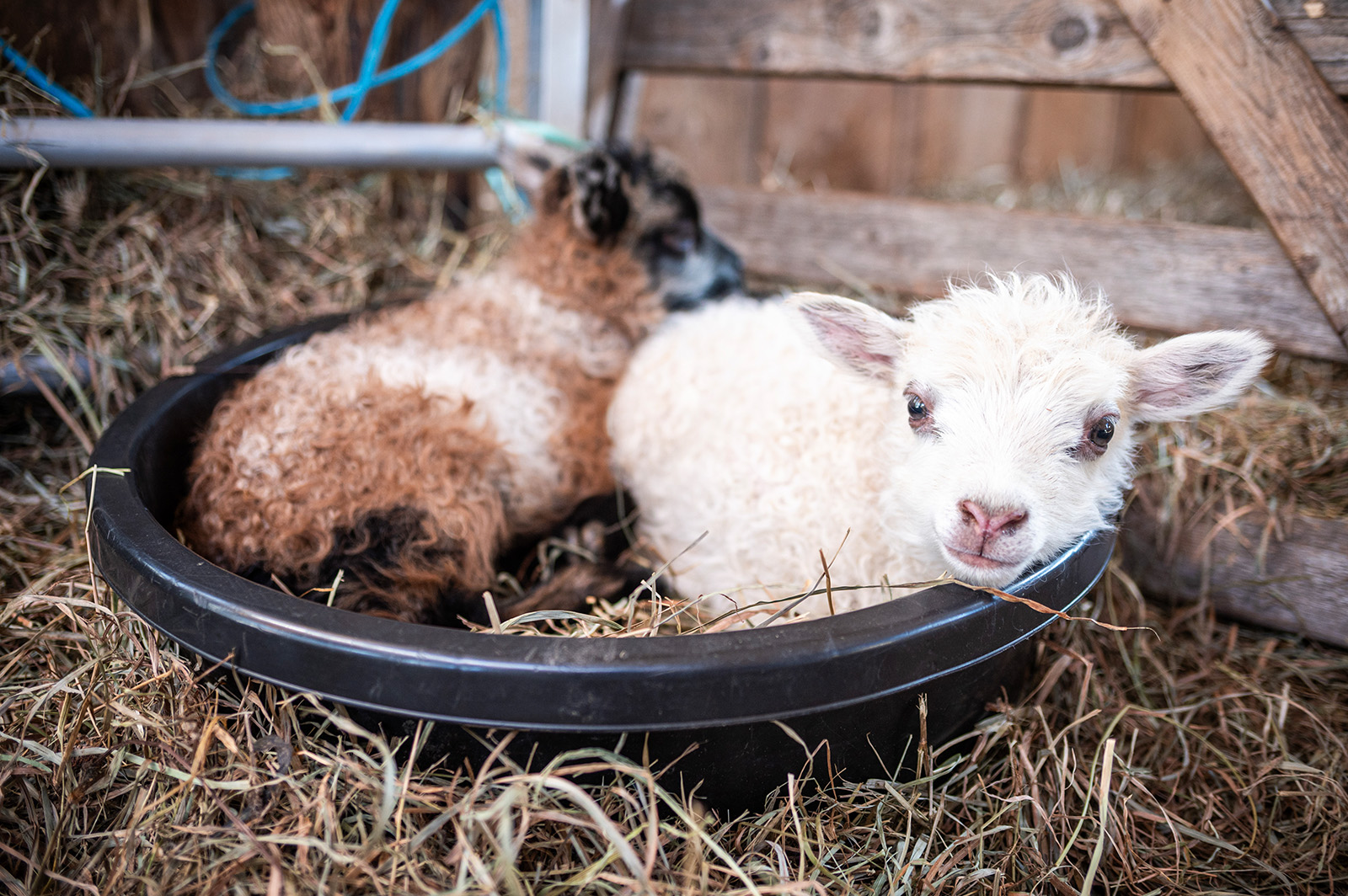
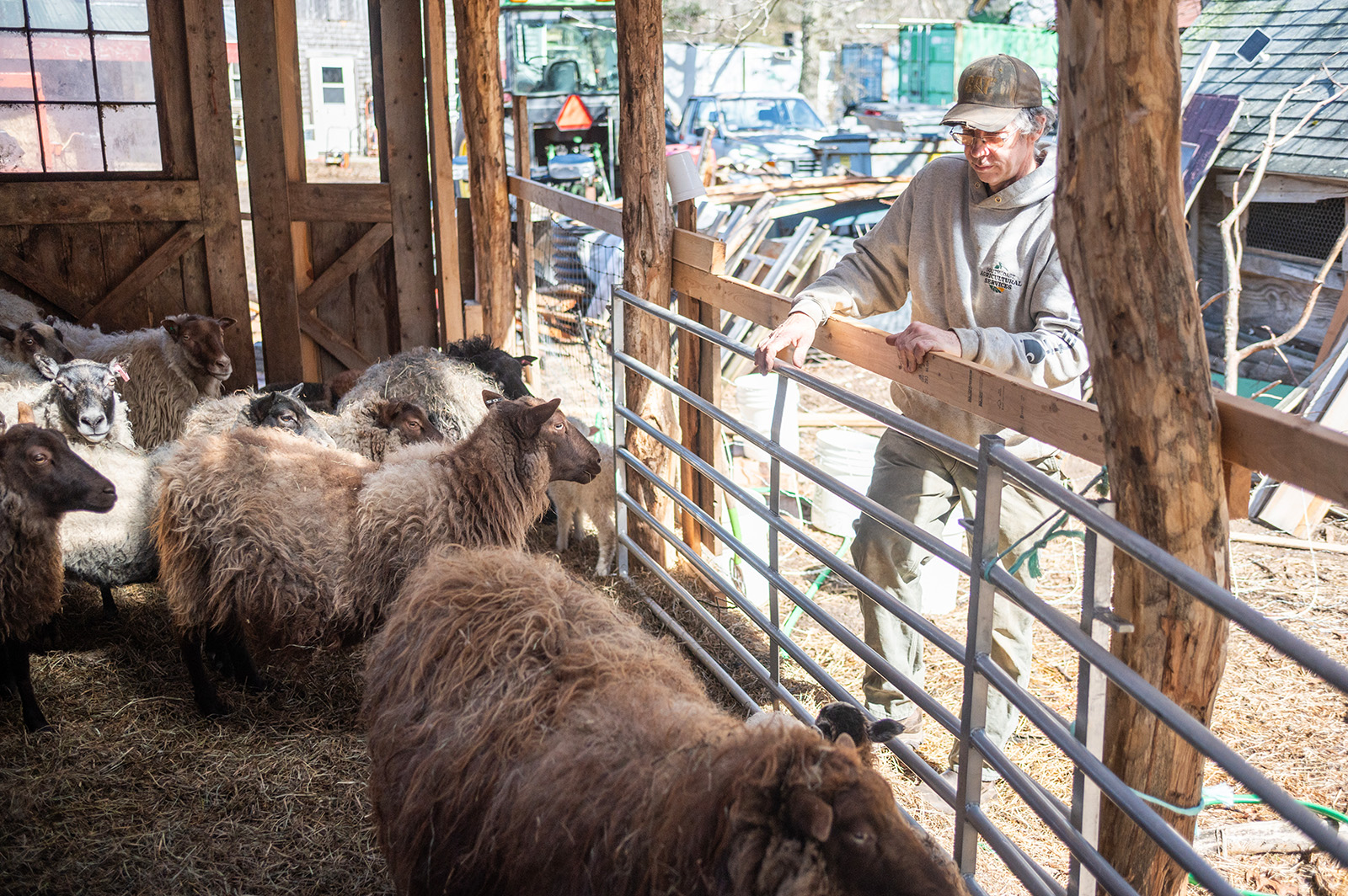
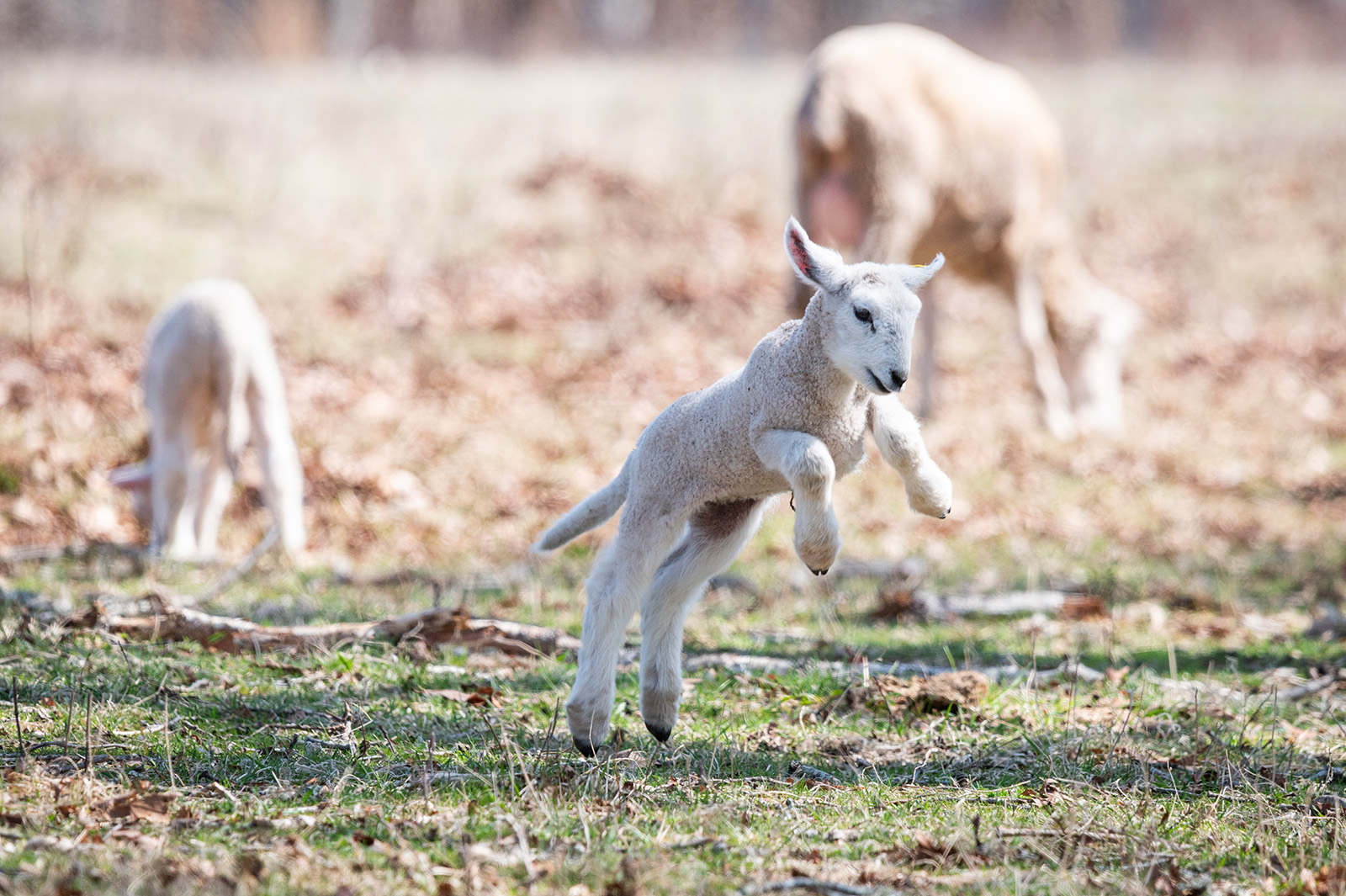
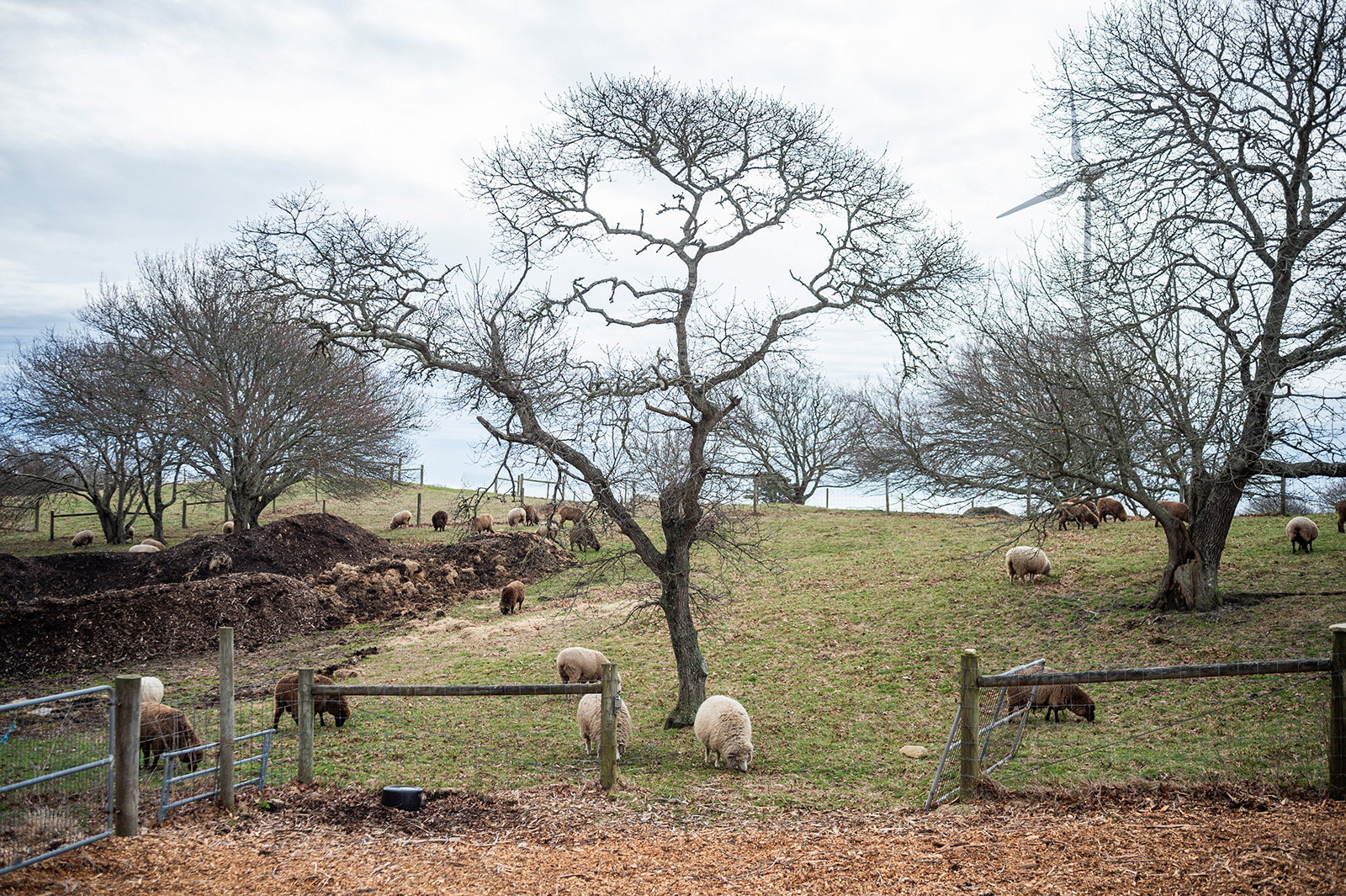




Comments (5)
Comments
Comment policy »